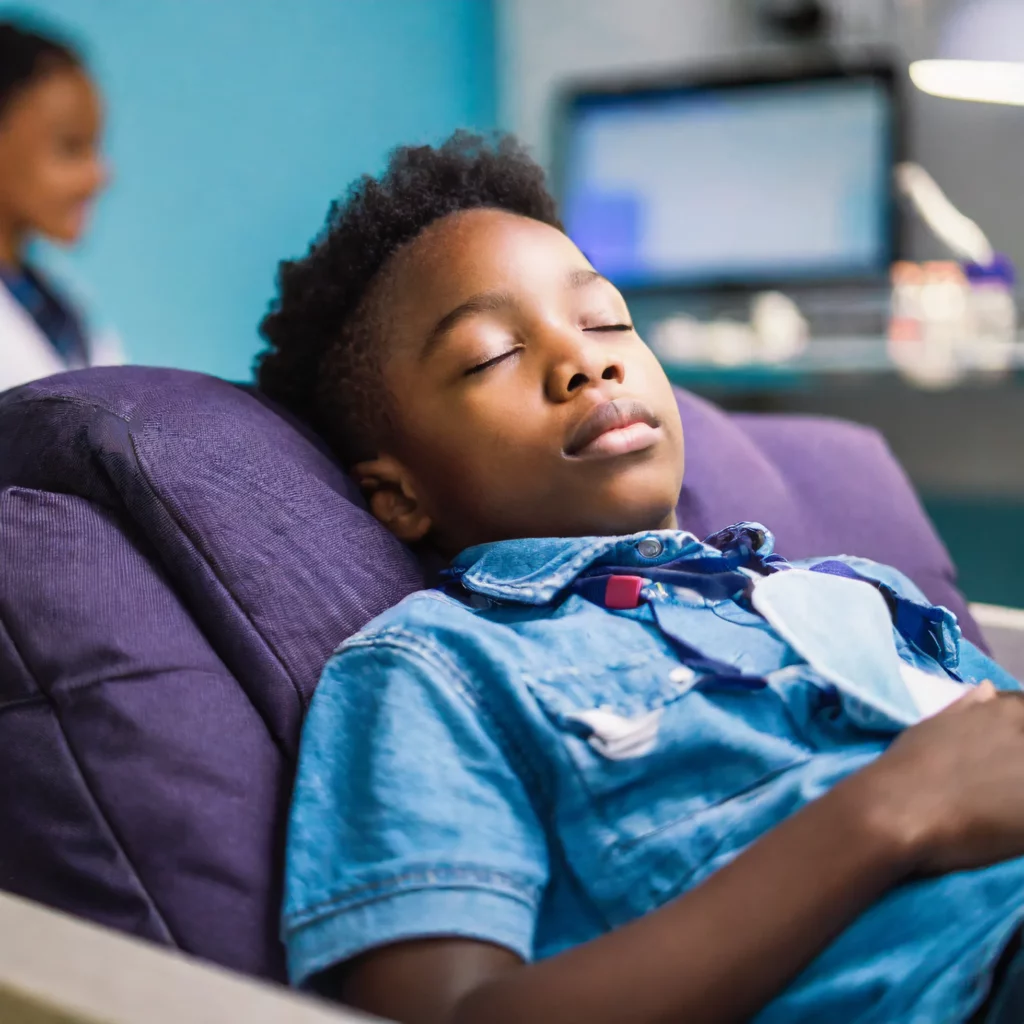Why hypnosis?
After my first years of medical practice in an academic setting, I realized that our standard treatments were just not working for many patients with chronic pain and other gastrointestinal symptoms. When I read about the effectiveness of clinical hypnosis for these conditions, my first thought was, “Why aren’t we all doing this?” That was when I started training in this powerful but underused modality. Immediately, I found it effective for patients with food-related anxiety, emetophobia, abdominal pain, chronic nausea, and a variety of other symptoms. Since moving into private practice, I have also been able to apply my knowledge and experience to symptoms outside of the GI tract, including different kinds of pain, phobias, and sleep difficulties. I am able to offer medically informed, compassionate treatment of children and adults with a wide range of symptoms related to chronic illness as well as to anxiety.
Patients with chronic symptoms are often told by doctors that there is nothing wrong with them, or that they “just have to live with it.” Parents are told that they should “just wait for their child to outgrow it.” Those answers are not good enough. I welcome those with the kind of frustrating, persistent symptoms which have not been resolved with standard medical care alone, and those who wish to enhance their medical care with directed mind-body techniques.
Telemedicine for hypnosis
The COVID-19 pandemic has prompted many health providers and patients to use telemedicine, to minimize the risk of viral spread. Fortunately, hypnosis appears to be as effective via telemedicine as it in person. I anticipate seeing patients only by telemedicine through April, 2021. Telemedicine will then remain an option for patients who prefer the convenience and accessiblity of remote visits. I use the HIPAA-compliant platforms of RingCentral and VSee.
Dr. Cherry has been an invaluable part of my daughter’s health journey in 2021! When my daughter was originally diagnosed with a chronic illness at the end of 2020, our entire focus as a family was centered on addressing her physical needs. We quickly realized that addressing her emotional and mental health needs were equally as important. Setting up her first appointment through the Center Point Medicine website was easy and I was thrilled when I learned that my daughter could attend her sessions online as opposed to in person. My daughter has been attending weekly on-line sessions with Dr. Cherry and I am happy to share that she is thriving! She is happier, better adjusted, and is able to process the ups and downs of dealing with a chronic illness better each day. Having access to these appointments on-line has been invaluable to our family…Dr. Cherry and my daughter have developed a wonderful rapport even though they have not yet met face to face. My daughter walks away from her sessions lighter, happier, and with an overall better attitude.
– Kelly S.
The first visit
During a first appointment, we will talk about your symptoms and treatment goals, as well as your strengths, preferences, skills, and habits. We will discuss potential strategies and next steps. Usually, there is time for at least a brief hypnosis exercise or demonstration. I’ll be able to suggest some practice or imagery to use until the next session, if further appointments are needed. The first visit usually lasts between 60 and 75 minutes.
Subsequent visits
During follow-up sessions, we will be able to track your progress toward your goal. In addition to fortifying the images and skills you are already developing, you will acquire additional tools to use both immediately and long-term. Follow-up visits usually last 45-60 minutes. At first, they may be every 1-2 weeks, then less frequent as your symptoms improve. Some people are done after just a few sessions, while others like to continue with a follow-up every few months.
Frequently Asked Questions
Can I be sure that hypnosis will work for me?
Clinical hypnosis is only effective when a person is open to it. For instance, if you want your child to spend less time playing video games, but he or she has no interest in changing that behavior or does not want to participate in a hypnosis session, this technique will not be useful.
What if I am too strong-willed to be hypnotized?
Most people can go into a state of hypnosis, so long as they are willing to. And if the goal is to treat a problem using hypnosis, then being determined and strong-willed is actually helpful! At any point in your life, have you ever been so absorbed in what you were doing/reading/watching/playing/thinking that you didn’t hear someone talking to you? If so, you are capable of going into a hypnotic trance.
How long does it take?
Although some problems may resolve after a single session, most conditions will require multiple sessions, spaced 1-2 weeks apart. The number of sessions that it takes to see improvement will depend on several factors including the nature of the symptoms and how frequently a person “practices” between sessions.
Typically, the first session is 50-60 minutes long and follow-up sessions are 40 minutes.
Can I get “stuck” in a trance?
No. You may feel sleepy or groggy for a few minutes after a hypnosis session, but then you will return to your normal level of awareness. It’s a similar situation to when you come out of a movie theater, after being completely absorbed in a good movie — maybe you have had the experience of coming out of the theatre and being surprised that it is still light out, or feeling like it takes a moment to get back to “real life.”
Will I remember what happened?
Unless you specifically give yourself (or ask for) the suggestion of amnesia, you will remember everything that happened during the session.
Could I do something embarrassing or illegal during hypnosis?
When people are in trance, they are still themselves — just in a state of consciousness that may feel more like a daydream. They cannot be controlled or convinced to do something that they would find dangerous, objectionable, or immoral.





